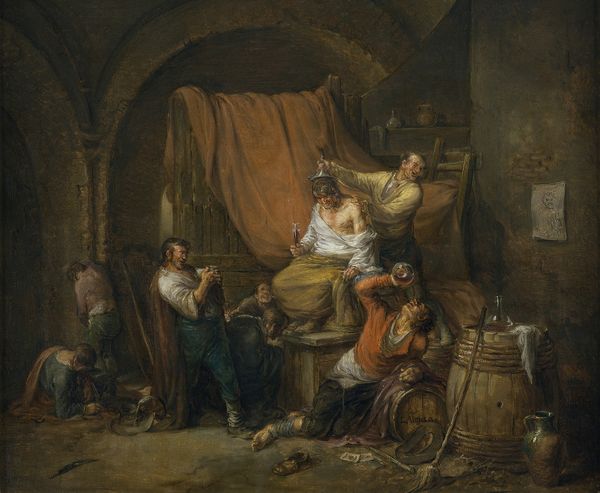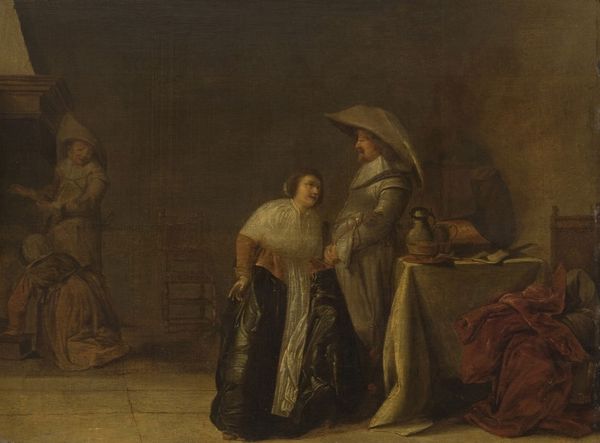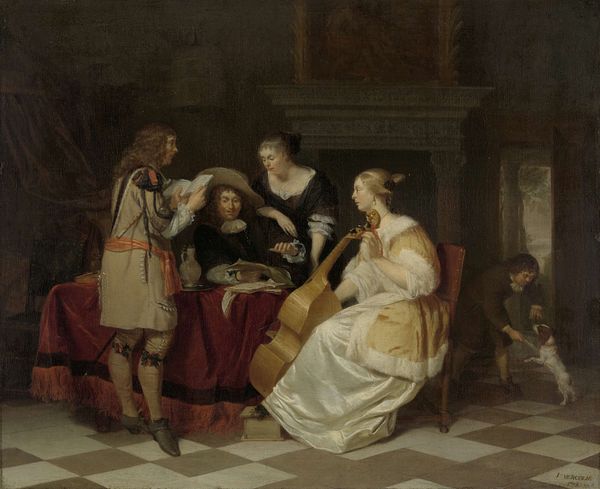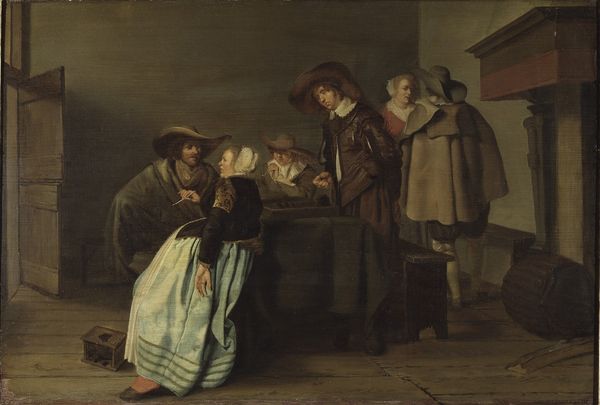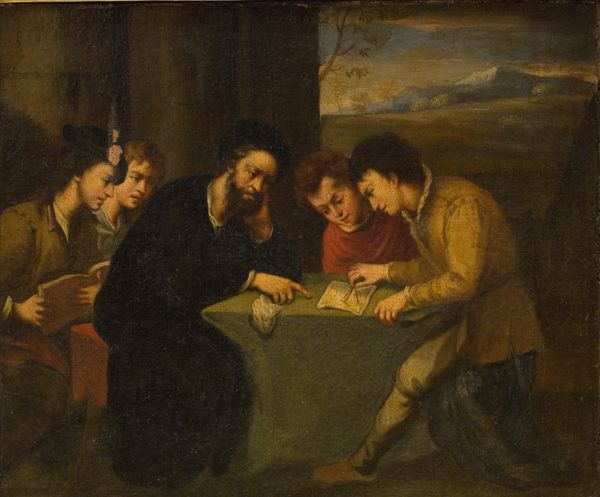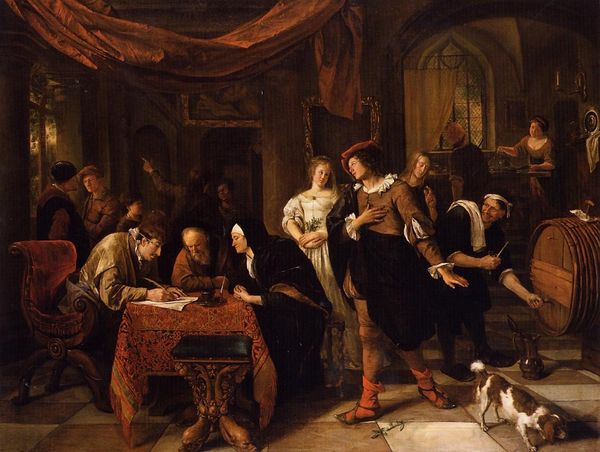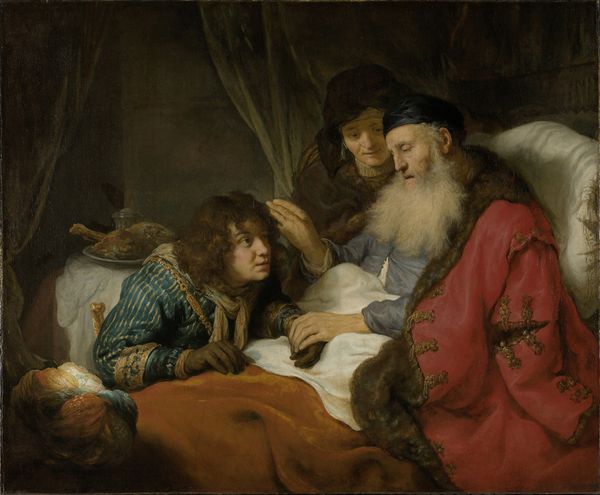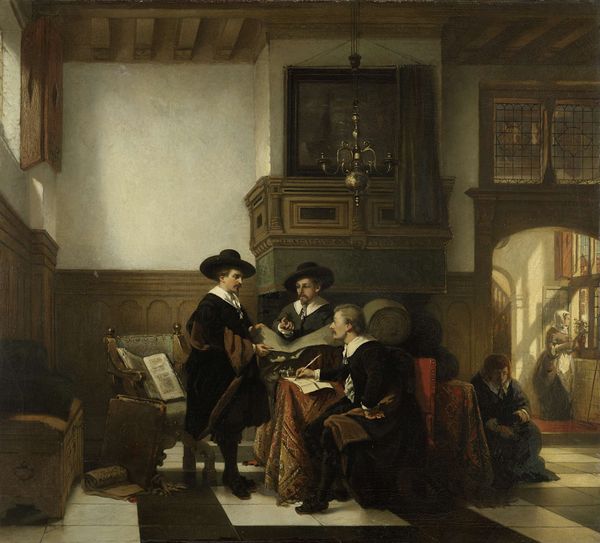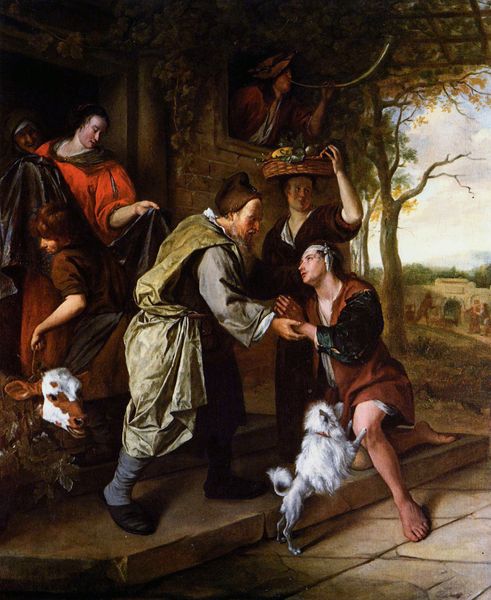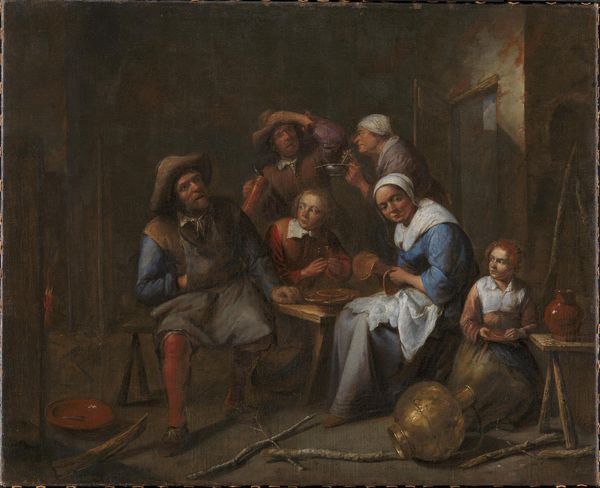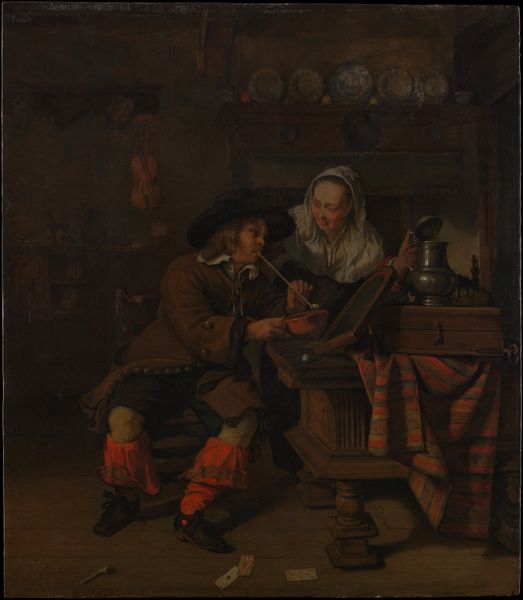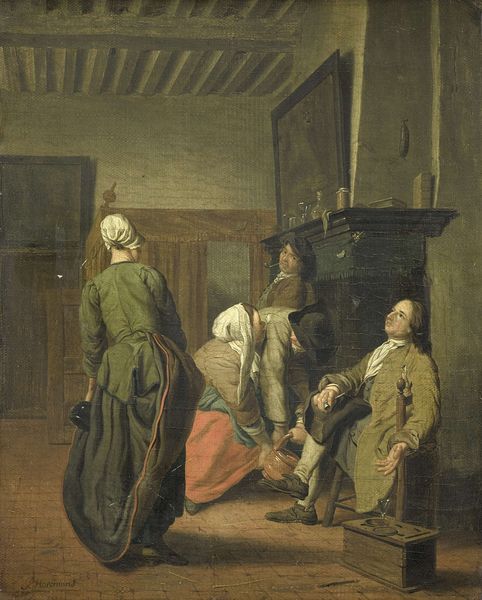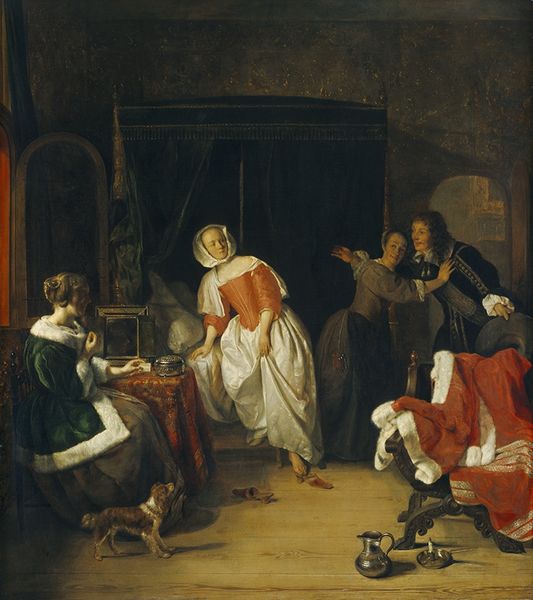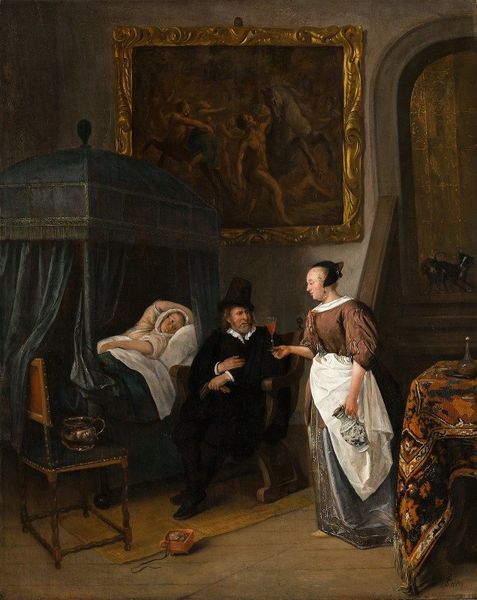
painting, oil-paint
#
narrative-art
#
baroque
#
dutch-golden-age
#
painting
#
oil-paint
#
figuration
#
history-painting
Dimensions: height 120 cm, width 134 cm
Copyright: Rijks Museum: Open Domain
Jan Victors painted "Joseph Interprets the Dreams of the Baker and the Butler" sometime in the mid-17th century. It depicts a scene from the Book of Genesis, reflecting the Dutch Republic's engagement with religious narratives. The painting shows Joseph, imprisoned in Egypt, interpreting the dreams of two fellow prisoners. This wasn't merely a biblical illustration; it spoke to the Dutch Republic's social fabric, where interpreting signs and symbols was a common practice. Consider the rise of emblem books and the popularity of proverbs during this era. Victors situates the biblical story within a recognizably Dutch setting. The prisoners' attire and the prison's architecture echo contemporary Dutch life, blurring the lines between the biblical past and the present. To understand this painting fully, we need to look at the broader cultural and intellectual milieu of the Dutch Golden Age. Research into period sermons, pamphlets, and popular literature will help to reveal the nuances of its meaning. What was the public role of religion in the Netherlands at this time?
Comments
No comments
Be the first to comment and join the conversation on the ultimate creative platform.
